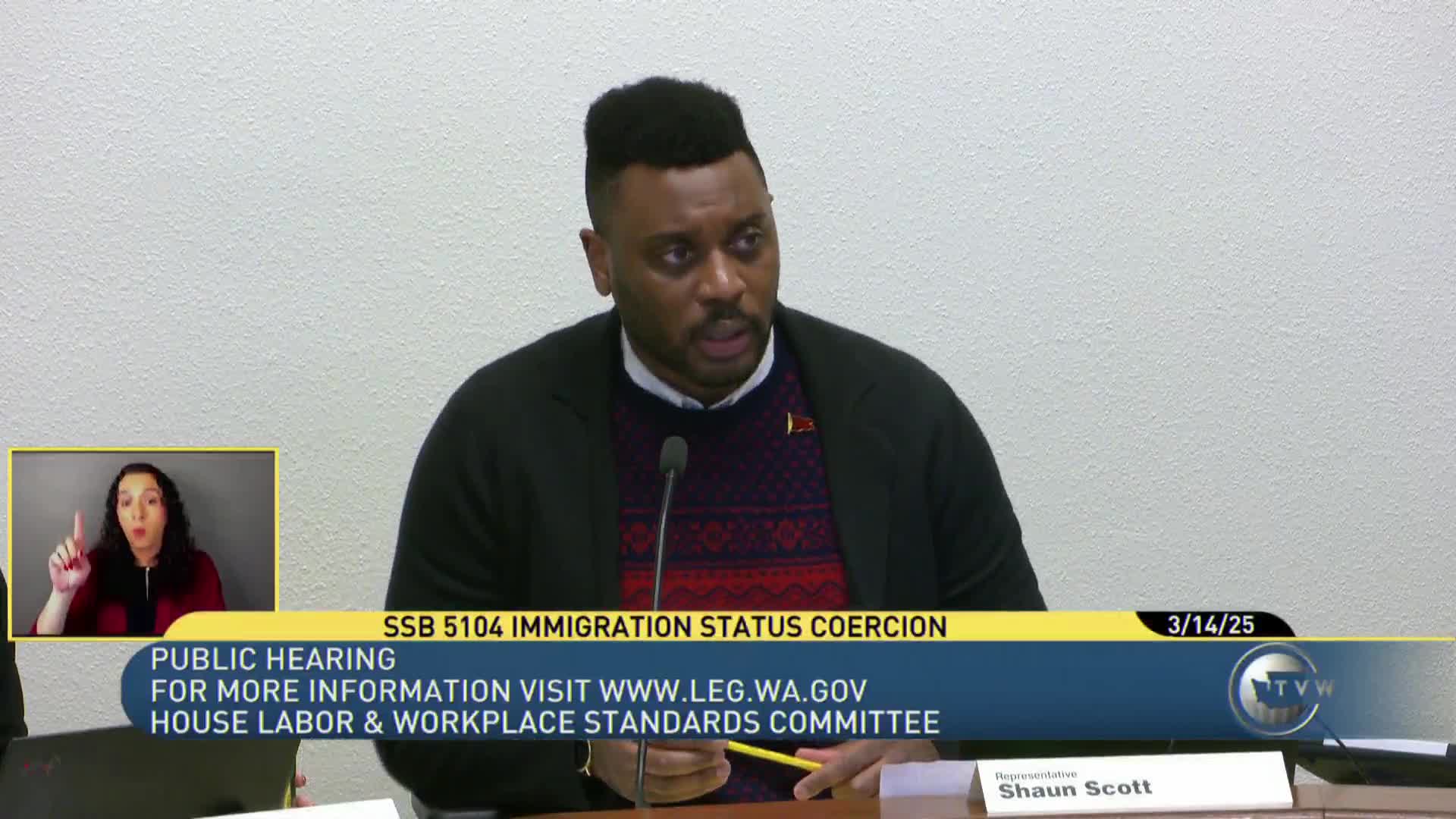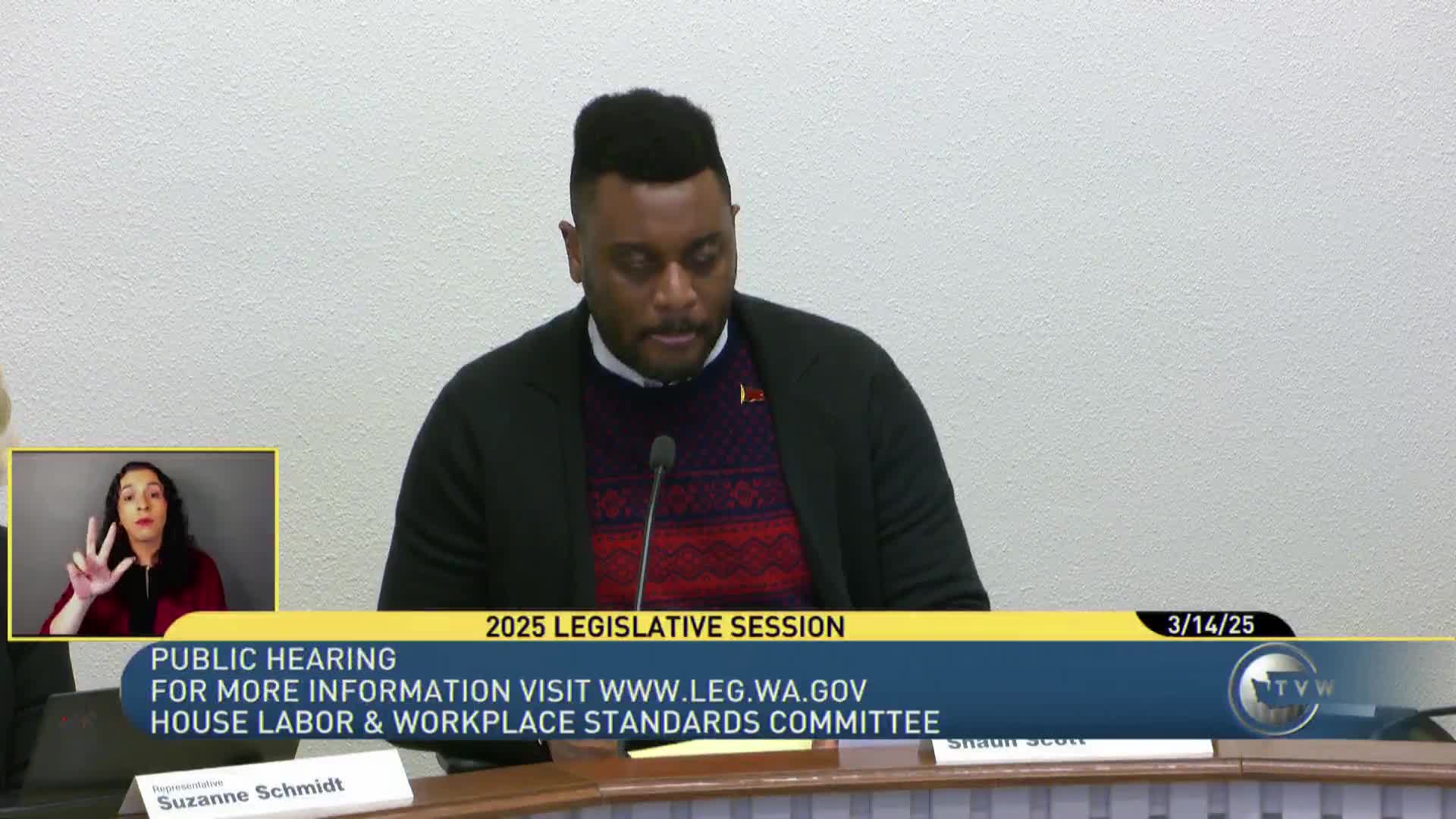Article not found
This article is no longer available. But don't worry—we've gathered other articles that discuss the same topic.

Bill to expand interest arbitration to small jurisdictions prompts debate over cost and fairness

Committee hears bill to ban blanket driver's‑license requirement for hiring with limited exceptions

Committee advances change to PFML employer definition for dock workers' payroll reporting

Committee hears bill to ban employer coercion based on immigration status and add penalties

